Global Neuro Health
About UCLA Global Neuro Health
Brain disorders are one of the leading causes of years lived with disabilities in developing nations.
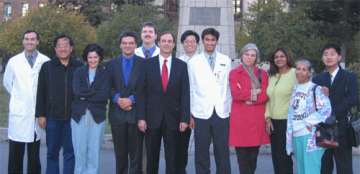
This situation demands a response from concerned Clinical Neuroscientists.
Based on many years of experience in relief international work at UCLA Neurosurgery we have come to the conclusion that the role of Academic centers should not be limited to supporting individual faculty in their commitment to charitable work; American Teaching Hospitals need to reach out to the teachers of Surgery and Medicine for the developing nations.
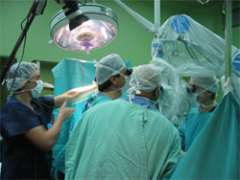
Clinical Neuroscientists from Africa, Asia and Latin America thrive for intellectual interchange about the diseases they deal with everyday. To maximize the impact that we can have on the care of patients with diseases of the brain we need to work elbow to elbow with our colleagues from developing nations. We foster an interchange of ideas that has to take place at a national public teaching hospitals be it in the outpatient clinics of Kenyatta Hospital in Nairobi and in the operating room at San Juan de Dios Hospital in Guatemala City.
Since 2001 the UCLA Neurosurgery has initiated a program for specifically addressing the surgical needs of patients from developing nations who had congenital disorders of the central nervous system (CD-CNS).
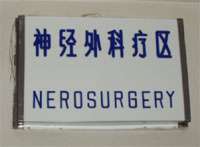
We established a network of partnerships with hosting university hospitals. Working together in the OR with their staff neurosurgeons we shared new insights on the diseases of our patients in common, and validated surgical techniques, that in some cases, were deemed as obsolete by state of the art trans-operative technology.
In the past six years, UCLA Neurosurgery has manned a total of sixteen surgical teams that traveled to:
- Guatemala
- Romania
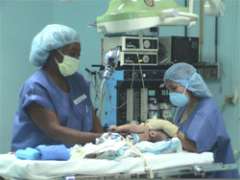
- China
- Argentina
- Dominican Republic
- Chile
- Kenya.
Our team of UCLA Neurosurgeons have been directly involved in the surgery of more than 200 children with complex surgical disorders.
As we recognize the importance that this type of international cooperation has for the education of our neurosurgical residents our senior trainees have actively participated in this program.
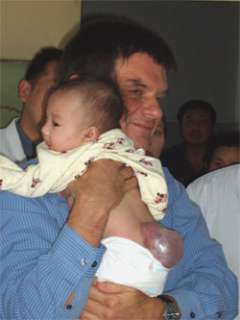
From this interaction they acquired a first hand knowledge of diseases that are seldom seen in the US and they have developed a better understanding of natural history of the pathologies of the central nervous system. Also, by having to work with less sophisticated neuro imaging equipment our residents have honed their diagnostic skills.
Last, but not least, the interaction with their peers has fostered personal relations with young neurosurgeons from other nations who most certainly will become leaders of the specialty in their continents.
At the same time we have welcomed eleven fellows who have come from:
- Eastern Europe
- Asia
- Latin America
- Africa
They have stayed for six months observing the clinical and surgical practice and developing research projects suitable for the population that they will serve upon returning to their country.